Bengali Music Oral History
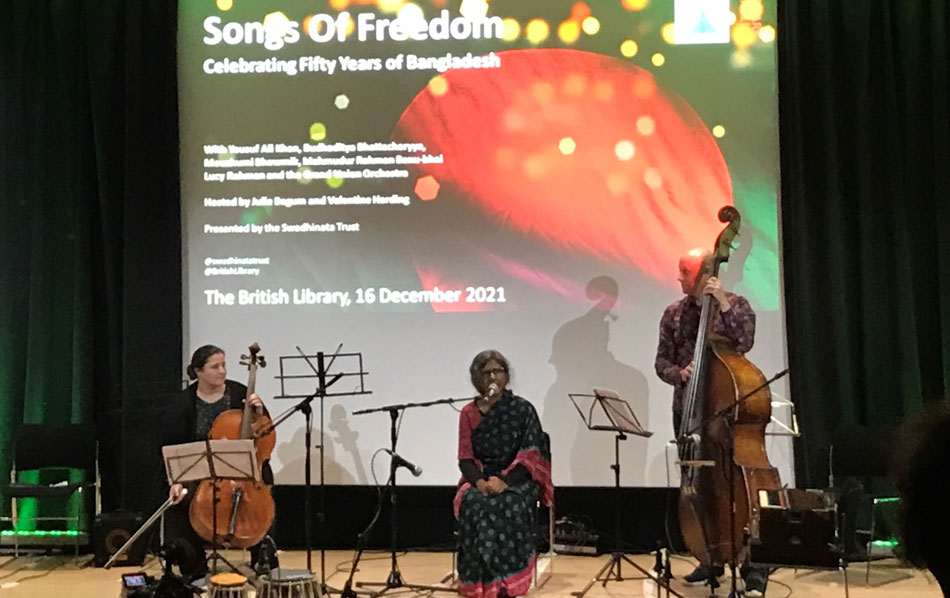
Our collection of oral histories and interviews is a collaboration between the Swadhinata Trust and the British Library Sound Archive. We have set out to collect oral histories of people and examples of Bengali musical involvement that demonstrates the life of music in the community. This project is not just concerned with well-known performers, star artists, or emerging artists, although some of them are included. Neither is it research that is solely focusing on typical examples and genres of music. But it is a review of the culture that surrounds music, the influences of migration, and community involvement in music. To date we have collected 30 interviews and various musical recordings.
The participants in this collection represent many aspects of the life of Bengali music in the UK: from 1971, and the Bangladesh Independence struggle, to migration, teaching and learning in the UK, present day song writing and musical composition, the annual Boishaki Mela, and theatre. The project is inclusive of all Bengali music whether this is from Bangladesh or West Bengal in India. Originally, before Partition, Bengal was one province, and these two areas share a common language and cultural heritage.
Songs of Freedom at British Library on Victory Day 16th December
By the late 1980s, the rise of British Asian underground music was in full force. The British Asian youth of the time grew up in an environment of racial violence and political struggle for self-identity, which culminated in a new underground music scene which combined dance music with the music of their parent’s generation.
While drawing strength from street culture and Asian roots, they took pride in their music as something they they could claim it as their own – neither white music nor music imported from the Indian subcontinent. The artists who emerged from this period became some of the greatest Asian artists Britain has seen. Some of these – ADF (Asian Dub Foundation), Joi, State of Bengal and Osmani Soundz – are of Bengali origin and are among the true pioneers of the Asian underground scene.
These days Shoreditch is a popular and fashionable area of London, dotted with clubs and bars playing contemporary dance music. Perhaps lesser known is that this area got public exposure from, now well-established, Asian artists who brought attention to the area through the Asian Underground scene.
From 1992, Joi played at the Bass Clef club every Thursday night, attracting nearly every credible artist of its time. Joi is a dance music outfit of DJs and musicians of Bengali origin, initially started by brothers Farook and Haroon Shamsher. From Orbital to the KLF, Goldie to Bjork, Joi established themselves as legendary founders of what became known as the Asian Underground. In December 2006, Farook Shamsher, one half of the brother duo, was awarded the prestigious UK Asian Music Award 2006 for ‘Commitment To The Scene’, in recognition for their seminal work of those early days and his long-standing work in the Asian music scene.
In an interview with the Swadhinata Trust in 2006, one of Joi’s members, Hasan Ismail, said:
“It’s because we had an ideal as well. Obviously growing up all our life in London, we enjoyed the Western side of going out and listening to English music, but we also had our Bengali identity which everyone needed to keep, which we were very proud of. So we decided to mix both kinds of cultures together and still keep both kind of identities and lifestyles – and show it through our music.”
The Bass Clef later became known as the Blue Note, where Talvin Singh ran his legendary club night Anokha. Just like theatres and music halls, the Asian Underground club nights slowly faded from this area, but its legacy shaped the streets of modern-day Shoreditch, where thousands flock every night for its host of bars, restaurants and cafes.
Whirl Y Gig, one of the longest running world dance clubs, played at Shoreditch Town Hall from 1991 – to 1996, playing a wide range of music, primarily world and dance fusions, from heavy dub and funky tribal beats to tropical house and uplifting global trance, from Africa to Europe to the Middle East and Asia.
The crew continued their global journey pushing abstract, experimental and electric sounds in an interactive environment which saw it rise the ranks from the Blue Note to Fabric.
What made this scene special was how cultural activism happened in parallel with political activism. While these pioneering artists were not seen as political activists themselves, their political stance is implied in their names. Osmani Soundz is named after Commander of Bengali freedom fighters, Joi is named after Bangladesh’s national slogan ‘Joi Bangla’, State of Bengal is self-explanatory as are ADF’s lyrics.
In the face of racism and violence, Asian youth movements of the 70s, 80s and 90s shaped East London to be the area it is now celebrated to be today. We must ensure their stories are told and remembered as the cultural pioneers they were and continue to be.
Ansar Ahmed Ullah is a community activist who has lived and worked in the East End of London since the 1980s. He has worked as a youth, social and community worker and has been an active anti-racist campaigner. Ansar is currently a research student at the Queen Mary University of London studying community activism.
Photo by York Tillyer: Joi at Dogstar Brixton
Alaur Rahman
Arifa Hafiz
Charles Hare ( vocal recording only)
Delwar Hussain
Gamini Abayawrdana (vocal recording only)
Jasminder Daffu
Julie Begum
Kaysher Ahmed
Mahmudur Rahman Benubhai x2 and 2004 tour recording
Mike Sherriff
Moushumi Bhowmik
Mukul Ahmed
Nadia Wahhab
Rez Kabir
Rumana Khair
Tanasree Guha (vocal recording only)
Val Harding
Yasmin Rahman
Himangshu Goswami
Himanish Goswami
Golam Mostofa
Mahamaya Shil
Mukul Ahmed re. Gauhar Jaan
Tarun Jasani re. Gauhar Jaan
Somjit Dasgupta
Jawad Choudary (in Bangladesh)
Mohammed Mobasshish Choudury (Bangladesh)
Boishaki Mela 2017 – Dillu (Delwar Hossain), Nasrin Begum
Anvita Gupta
Ina Khan
Yousuf Ali Khan
Abdul Shohid Jalil
Rafa Haque
Tony Haynes
Budhaditya Bhattacharyya
Obin Ahmed
Lucy Rahman
Boishaki Mela 2016
Maanusher Gaan – Mukul and the Ghetto Tigers
Storytelling at Boishaki Mela – Rez Kabir
Somjit Dasgupta – sarod
Charles Hare – vocal
Gamini Abayawrdana – vocal and guitar
Tanasree Guha – vocal
India Tour 2004 – Mahmoud Rahman
Bollywood Brass Band
Bauls of Bengal concert Waterman’s July 2018
Anando Gopal Das Baul and group – home recordings in London July 2018
Yousuf Ali Khan – tabla bols
Rafa Haque – vocal
GUO – Lalon Ki Jat and Red Soil
Bangladesh Liberation War 1971
Migration and musical development in the UK
Boishaki Mela
Gauhar Jaan – Mukul and the Ghetto Tigers (music history)
Music history from Bangladesh and West Bengal
Younger generation in the UK
Younger generation in Bangladesh (linked to music in the UK)
Community learning in the UK – Udichi Shilpi Gosthi and Chayanot School of Music.
Music and Theatre – Mukul and the Ghetto Tigers
Saudha, Society for Poetry and Music
Baul Gaan
North Indian classical
Nazrul Geeti
Rabindra Sangeet
Ghazal
Bengali traditional
Bengali modern
Electronic music
Songwriting and present day composition
Click on the link below to access the oral history and sound recordings

Oral History Interviews
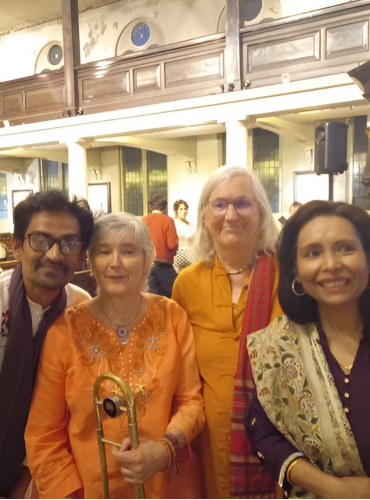
Oral History Interviews
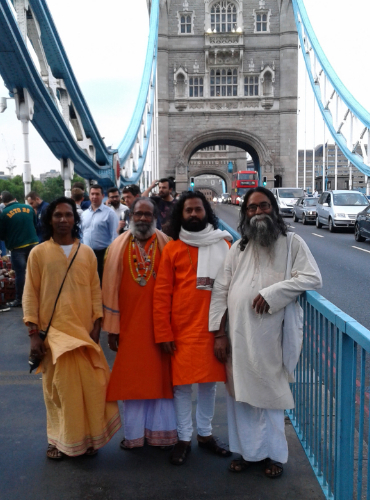
Bauls in London
Concert at Watermans Arts Centre. Part of the Music of the Three Worlds series organised by Asian Music Circuit.
This is a rare recording in London of traditional Baul musicians from West Bengal, India.
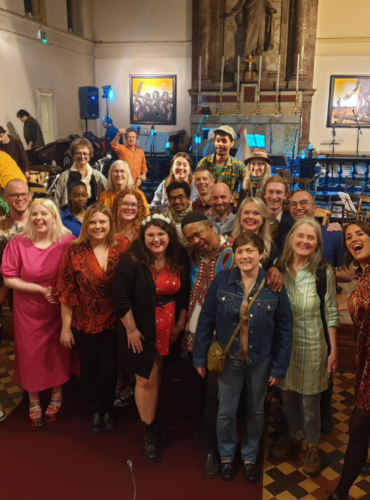
Grand Union Orchestra
Recording of the song Lalon Ki Jat and Red Soil arranged by Tony Haynes, performed by the Grand Union Orchestra in Leeds.
Lalon Ki Jaat, a song written by the 19th century Bengali Baul Lalon Shah describing how no one is born with the mark of caste, we are all equal.
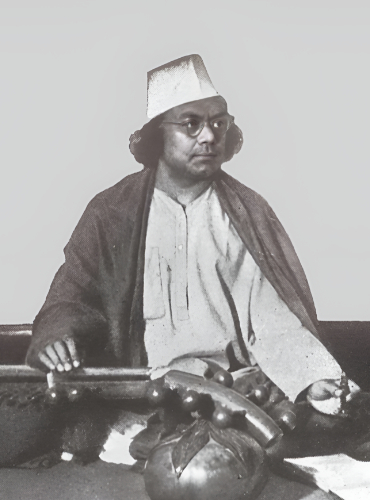
Maanusher Gaan
Recording of Maanusher Gaan, a concert of song and poetry of Kobi Nazrul Islam. Performed at the Brady Centre, Tower Hamlets.
CREW: Directed by Mukul Ahmed
Music arrangements by Tarun Jasani and Matthew Roddy
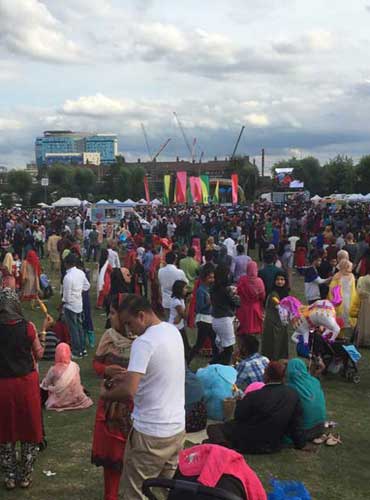
Baishakhi Mela 2017
Warm -up and performances by various Bengali presenters and Musicians recorded at Baishakhi Mela from the main stage 2017 in Weavers Fields in Tower Hamlets London e2.
Bengali Male presenter Suman Khan from NTV Europe 06.30-10:00

